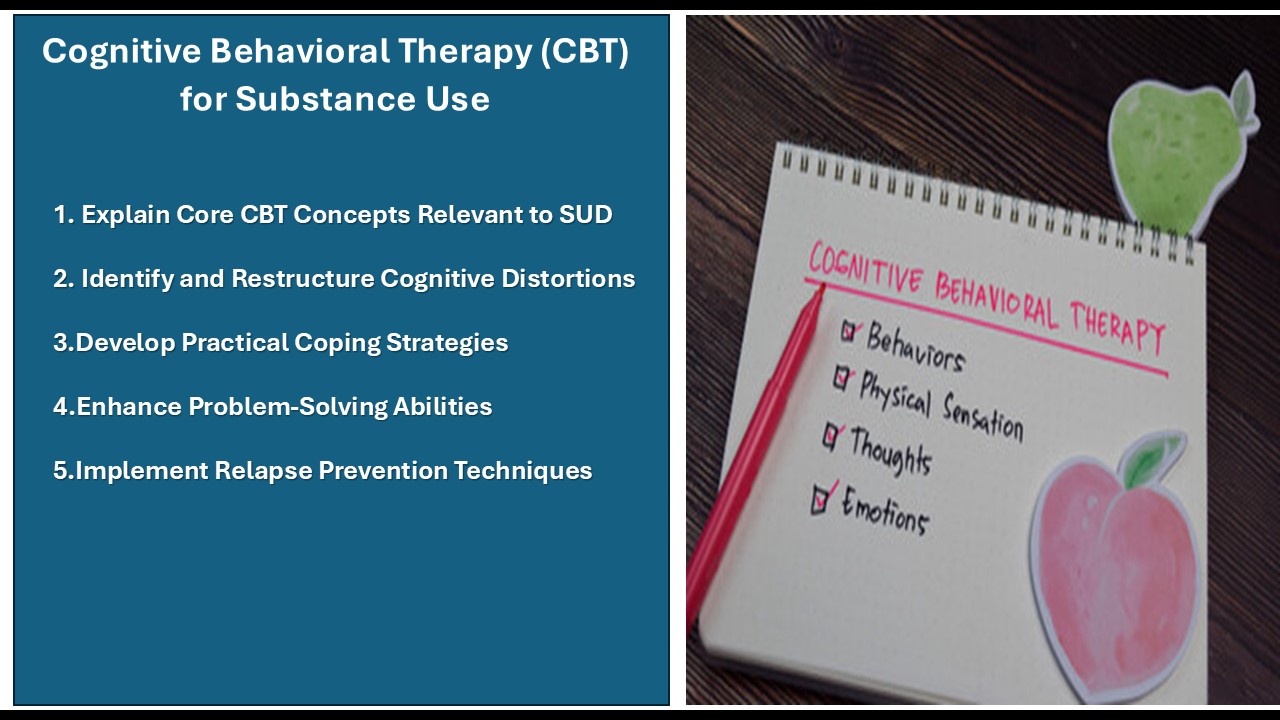The presence of both a mental health disorder and a substance use disorder in an individual, requiring specialized, integrated treatment.
Treating Co-occurring Substance Use and Mental Health Disorders
Training Description:
Treating Co-occurring Substance Use and Mental Health Disorders
Co-occurring emphasizes the relationship between mental health issues: and substance use
disorders. Participants learn to screen for both substance use and mental health concerns,
ensuring that treatment addresses the full spectrum of a clients needs. Counselors will be
equipped to collaborate with multidisciplinary teams and design comprehensive, simultaneous
interventions that improve client outcomes.
- Understand the Interplay of Mental Health and Addiction
- Identify and Utilize Dual-Diagnosis Assessment Tools
- Develop Integrated Treatment Plans
- Collaborate with Multidisciplinary Teams
- Address Barriers to Care and Engagement
Course Learning Objectives
This is a web-based self-paced training which provides 2 hours substance specific
board approved hours. The content for this project has been curated or developed by author Michael Daniels
MSW, LCAS, CCS, LCSW and other many amazing professionals who have donated their expertice and time to
ensure practitioners entering the addiction profession have access to quality trainings without barriers
of finance and access.
Receiving Credit: In order to receive credit for the training you must complete the interactive question within
the training. If you do not complete the embedded quizes, when you get to end of the training you will not
receive credit until you complete the embedded quiz questions. In Addition, you must complete the
50 item quiz at the end of the training and receive at least an85% before receiving your certificate. You do have
the option of retaking the quiz until you reach the approved score. Once you submit your quiz, you will receive
your certificate with in 24 hours.
A coordinated approach that addresses both mental health and substance use disorders simultaneously to improve overall client outcomes.
The process of screening and evaluating an individual for both substance use and mental health disorders using evidence-based tools.
A comprehensive framework for understanding COD that considers biological, psychological, and social factors influencing an individual’s health.
A group of professionals from different disciplines, such as psychiatrists, social workers, and medical doctors, collaborating to provide holistic care.
Negative beliefs and stereotypes about individuals with mental health and substance use disorders, which can create barriers to seeking treatment.
A client-centered counseling approach that enhances motivation to change through collaborative conversation and support.
Strategies designed to minimize the negative consequences of substance use without requiring immediate abstinence.
The use of FDA-approved medications in combination with therapy to treat substance use disorders, particularly for opioid and alcohol dependence.
An evidence-based psychotherapeutic approach that helps individuals change maladaptive thought patterns contributing to substance use and mental health issues.
A public health approach used to identify, intervene, and refer individuals with potential substance use issues.
A treatment philosophy that tailors interventions to the specific needs, preferences, and values of the individual.
A holistic framework that emphasizes long-term recovery through community-based services and peer support.
An approach that recognizes the impact of trauma on individuals with COD and integrates safety, trust, and empowerment into treatment.
The practice of evaluating treatment effectiveness by tracking progress in both mental health and substance use recovery over time.

Below you will be able to access the training
- Course Introduction (10 minutes)
- Defining SBIRT & Its Purpose (15 minutes)
- Module 2: Core Components of SBIRT (20 minutes)
- Module 3: Rationale and Evidence Base for SBIRT (15 minutes)
- Step-by-Step SBIRT Implementation (30 minutes)
- Tailoring SBIRT for Diverse Populations (20 minutes)
- Course Wrap-Up & Final Assessment (10 minutes)
Additional Resources Related To This Training
Supporting Recovery: Integrated Treatment for Co-Occurring Disorders
Articles Related To This Training
- Adults Enter Integrated Residential Treatment For Substance Use Disorders
- Seeking Safety treatment for male veterans with asubstance use disorder and post-traumatic stress
- TIP 42 Substance Use Disorder Treatment for People With Co-Occurring Disorders
- Recovery from Substance Use and Mental Health Problems Among Adults in the United States
- Co-Occurring Mental Health and Substance Use Services
Contact: Michael Daniels: Email: danielsm@ecu.edu: Phone: 252 7372117 for any technical questions
Editorial Disclaimer: Although all information contained in each training is based on validated research, any opinions expressed are those of the author's alone, and do not reflect
the opinions of affillate agencies. Although each training has an NCASPPB approved number, they
are not responsible for the content.